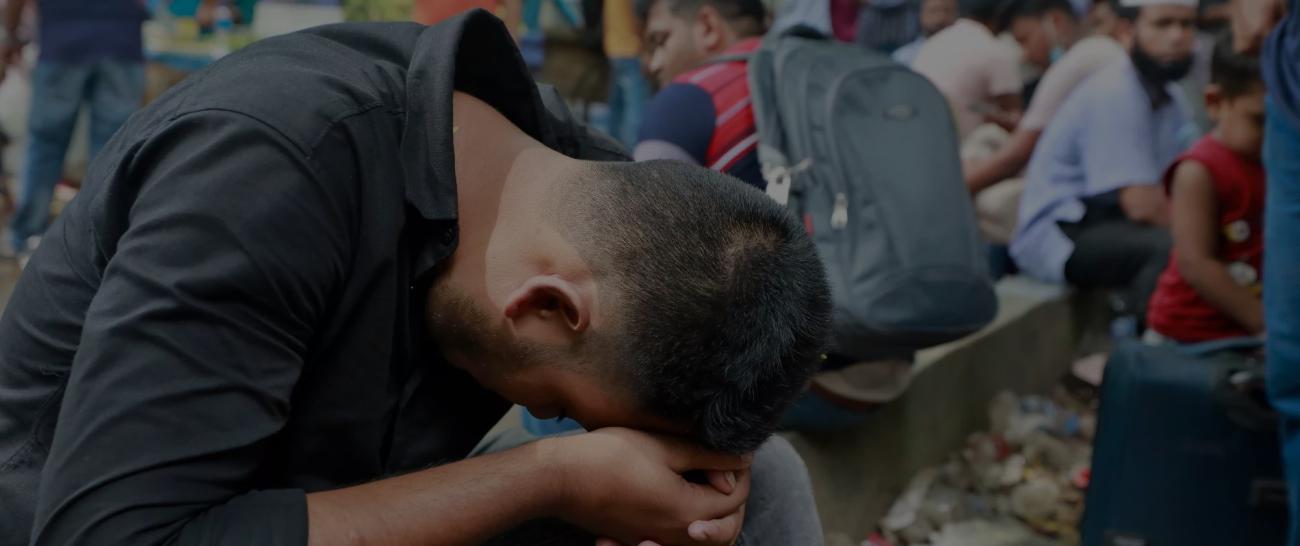Bangladesh: Rethinking labour migration governance for a fairer future

Bangladeshi migrant workers are shaping economies abroad and driving development at home. However, their journey remains fraught with challenges
As we marked International Migrants Day, we recognised the invaluable contributions of millions of Bangladeshi migrant workers shaping economies abroad and driving development at home. However, their journey remains fraught with challenges that demand systemic reforms.
The International Labour Organization (ILO) convened a dialogue to chart the way forward on labour migration reforms required to make working abroad fairer for Bangladeshi workers. The social partners - policymakers, employers’ representatives, CSOs and experts convened with a shared understanding that while Bangladesh has laws, policies, and institutional frameworks to safeguard migrant workers, systemic gaps persist, compromising workers’ welfare and protection.
Participants in the dialogue highlighted critical challenges across the labour migration cycle, starting with the high migration cost borne by migrant workers from Bangladesh. The Bangladesh Bureau of Statistics’ 2020 Cost of Migration Survey revealed that it takes at least 17 months for Bangladeshi migrant workers to recover the money they spend to secure jobs abroad. Factors such as visa trading, exploitative recruitment practices, over-dependence on intermediaries, and many hidden costs have distorted the market, pushing costs remarkably high. Additionally, non-transparent recruitment processes, including syndication and vested interests, persist despite bilateral labour migration instruments to promote fair recruitment in destination countries.
There has also been an unprecedented increase in recruiting agencies, which, without stronger oversight and due diligence in the recruitment process, exacerbate worker exploitation. The existence of unregulated sub-agents exacerbates worker exploitation, further eroding confidence in the recruitment process for jobs abroad. This issue will continue undermining workers’ protection and welfare without strict accountability measures and reform.
For women migrant workers, the situation is particularly dire as they often find themselves in less stable employment, typically low-skilled, low-paying informal jobs with limited labour rights. Their work is frequently terminated without notice, and they are returned to Bangladesh abruptly. The absence of targeted policies and labour market strategies to safeguard their welfare worsens their struggles.
Another challenge lies in the governance of remittances and a lack of confidence in the formal banking system. These drive migrant workers to insecure and expensive informal channels, reflecting a broader crisis of trust, as evidenced by the recorded slow growth in remittances since 2023.
Labour Reform Commission
The country's ongoing reforms, notably the Labour Reform Commission, offer a unique opportunity to implement pragmatic reforms in the governance of labour migration and re-integration in several ways. Accountability mechanisms must be established to eliminate visa trading and monopolistic practices that raise the cost of migration. Transparent recruitment processes must be enforced, and private sector actors must play a more decisive role under strict government monitoring.
Labour migration governance could be strengthened by tapping digital solutions to create integrated labour registries and ensure data-driven decision-making. Connecting BMET cards with immigration databases is a vital first step toward accountability and transparency.
The Government could also focus on skills and productivity by aligning technical training with global labour market demands. Public-private partnerships can improve quality, while competency-based training concentrating on soft skills can upskill migrant workers for higher-value employment opportunities. Bangladesh can also draw lessons from Indonesia and the Philippines to tailor social protection schemes for migrant workers.
Furthermore, institutional reforms with clear mandates for ministries and departments are essential for seamless service delivery at every stage. Likewise, the financial governance of migrant welfare funds delivered through the Wage Earners’ Welfare Board and Probashi Kalyan Bank must be transparent, with more vigorous law enforcement and anti-corruption measures.
Above all, all reforms must be gender-responsive to guarantee the safety and empowerment of women migrant workers. Time-bound, targeted interventions should be implemented to increase their participation in formal and safer migration channels.
The discussions reaffirmed that the challenges need a whole-of-government and a whole-of-society commitment. With over 1.3 million jobs created annually through migration, Bangladesh and its partners cannot afford to neglect the sacrifices and contributions of migrant workers. They should honour their contributions and respect their rights by implementing governance reforms in the sector to ensure they are protected and their rights as workers are upheld.
We must all commit to reforms that make migration safer, fairer, and more dignified. By safeguarding workers’ rights, we can reflect their aspirations and build a stronger foundation for sustainable economic development.






